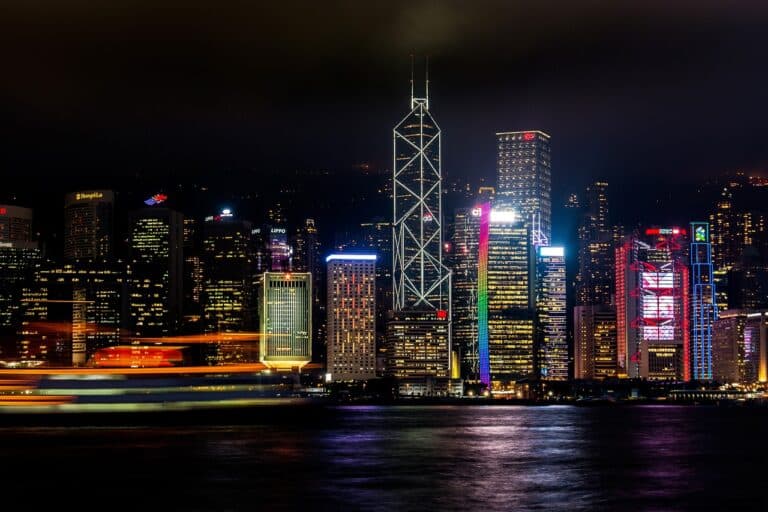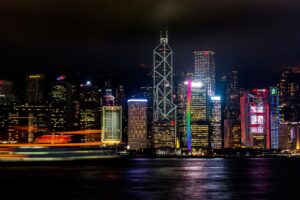(Hong Kong) At the end of a delegation visit from Hong Kong Bishop Stephen Chow, he delivered a closing prayer at St. Joseph’s Church. His prayer fell in line with the political mainstream in Beijing and cast a shadow over his four-day trip.
LOYALTY TO BEIJING
Bishop Stephen Chow hoped to curry favor with the Sinicization of religion in the name of loyalty to the country. After returning to Hong Kong, he said in an article published by Kung Kao Po: “I understand that this ‘stance’ can cause complex emotions, including sadness, disappointment, and even anger. However, after I returned to Hong Kong, some people expressed support for the above remarks.”
USING JESUS’ WORDS
He went on to say that love of one’s country is part of the teaching of the Catholic Church. This begins with the famous words of Jesus in Mark 12:17: “Render to Caesar the things that are Caesar’s, and to God the things that are God’s.” Bishop Chow interpreted Jesus’ words: “The implication is that both domains are necessary and not mutually exclusive for us citizens and Christians.”
PATRIOTIC UNDERGROUND BISHOPS
China’s unofficial underground bishops certainly know what it means to be patriotic, but they have chosen another kind of patriotic statement that is different from political declarations. For decades, Chinese underground bishops have paid a huge price with their lives. Bishop Chow did not fully stand on the side of the underground bishops. The underground bishops are completely loyal to the Pope. During his trip to Beijing, Bishop Chow was accompanied by bishops and officials from the Chinese Catholic Patriotic Association, and he enjoyed their courtesy.
PATRIOTIC PRAYERS
Bishop Chow chose to show his patriotism through prayers on the last day of his trip to Beijing, which disappointed many people who were optimistic about him before his appointment. They thought he would carefully handle the relationship between Church and state and would neither bow to Beijing nor provoke it. After all, the vocation of the Catholic faith is to only bow down to God, not to surrender to power. Bishop Chow’s patriotic statement shattered people’s expectations.
DISREGARDING UNDERGROUND BISHOPS
He did not consider the Catholics who do not belong to the government-controlled Chinese Catholic Patriotic Association. However, he seemed eager to continue cooperation with an atheist and communist government. That same regime has a long history of persecuting underground bishops and faithful. “My Beijing trip taught me to appreciate ecclesiastical and government personnel in the light of a common humanity desiring for ends that encourage further understanding and collaboration,” he said.
INVITATION TO ARCHBISHOP JOSEPH LI SHAN
He invited Beijing official Archbishop Joseph Li Shan to visit Hong Kong. “I hope there will be more cooperation between our two cities in the future,” Bishop Chow added: he hopes that this trip to Beijing “will not be the last.”
AGAINST “NEGATIVE CRITICISM”
Bishop Chow had wonderful expectations for the Beijing regime, and he found common humanity in a regime with a record of severe human rights violations. He is dissatisfied with independent media, politicians, and public opinion supervision by citizens. He believes that negative criticism of Beijing will not help improve the regime; only by treating people positively and encouraging them as he does can the regime be improved.
It is undeniable that Bishop Chow’s generosity, tolerance, and spirit of dialogue are worthy of recognition, but these spirits should not be unconditional surrender.
BISHOP CHOW’S CONCLUSION
The conclusion of his article published in the Kung Kao Po: “Pray that the Holy Spirit will guide us so that we can learn how to love our country and our Church at the same time. To love the Lord and love your neighbors. True patriotism must be expressed in opposing atrocities, repression, injustice, and deprivation of liberty, and one must also love those brothers and sisters who are underground and stand up for their dignity.”
POLITICAL PRESSURE
Objectively speaking, Bishop Chow’s visit to Beijing and his patriotic remarks all point to the fact that the Hong Kong Diocese is facing political pressure driven by Beijing.
CONTEXT
Before the historic visit, the Vatican appeared to lose control in China regarding bishop appointments. Simultaneously, the Sinicization of religion continues to jeopardize the future of Catholicism in China.
TWO VIOLATIONS OF THE CHINA-VATICAN AGREEMENT
On April 4, the Chinese government-controlled Bishops’ Conference unilaterally announced a personnel reassignment. Joseph Shen Bin was reassigned from Jiangsu to Shanghai to take over as the head bishop of the diocese. The Holy See stated that it only learned of Joseph Shen Bin’s appointment through media reports, meaning the Vatican had no say in the reassignment. In November 2022 last year, China also unilaterally appointed John Peng Weizhao as auxiliary bishop of Jiangxi.
WEAKENED RELATIONS
Although both bishops were recognized by the Holy See, the unilateral assignment still prompted a response. Diplomatic ties between China and the Holy See have thus weakened a lot.
~ Gao Zhensai, Special Correspondent of ChinaAid

